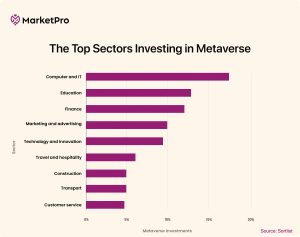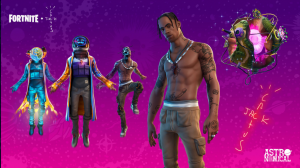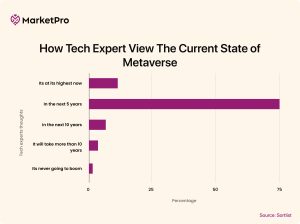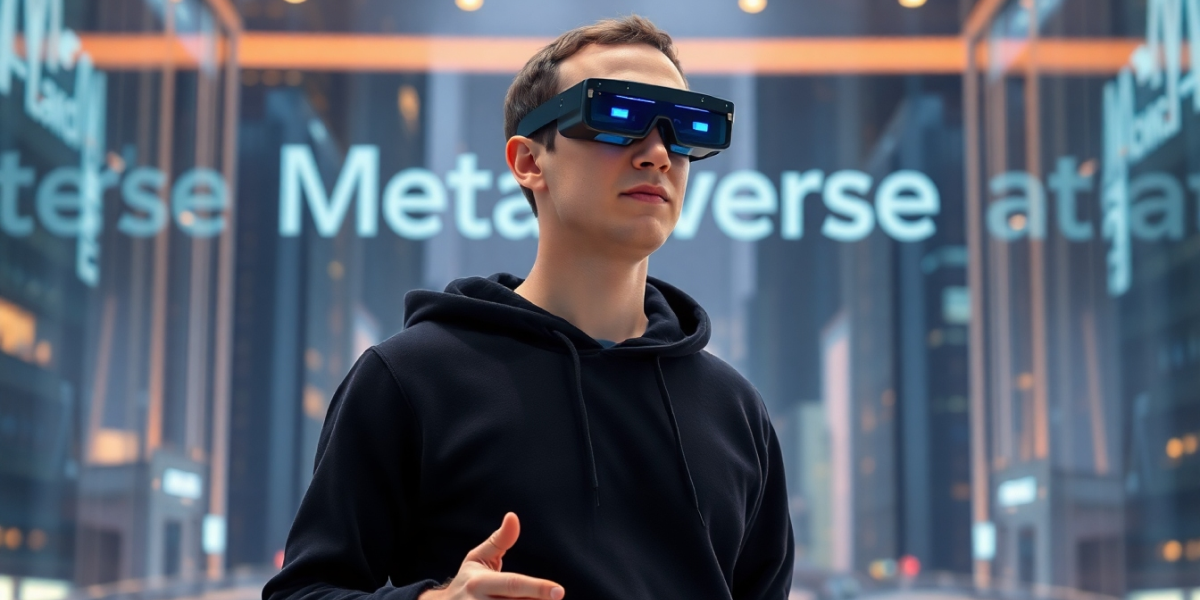Did you know Metaverse is set to be valued at $507.8 billion by 2030? Major brands like Gucci, Nike, Skybound Entertainment, Vans, and Chipotle have already joined Metaverse platforms.
The term Metaverse, coined by Neal Stephenson in 1992, became a significant focus point for many brands when Mark Zuckerberg announced Metaverse in 2021.
Virtual games, concerts, and events in the Metaverse have captured the attention of many millennials today. This has cracked open the opportunity for brands to leverage their presence to revolutionize the customer experience- for good.
Metaverse has launched revolutionary ways for consumers to interact with objects in real-time and will only expand its further use cases in the future. In this blog, we will discuss how the metaverse in digital marketing has allowed brands to provide seamless customer experiences and more valuable connections.
Also Read: Digital Marketing Statistics The Ultimate Checklist for Staying Ahead of the Curve
What is Metaverse Marketing?
Before understanding metaverse marketing, you need to know the metaverse concept first.
Metaverse is a virtual world where users engage and connect with others through virtual and augmented reality. It is a world where users experience the physical and digital world through the eyes of virtual reality, which influences gaming, shopping, socializing, and interaction with each other.
Metaverse marketing has come in the form of virtual billboards, virtual events, and sponsored virtual concerts. Metaverse has given immense opportunities to e-commerce businesses to experience shopping products and imagine their appearance by visually tapping into the digital world.

Metaverse Use Cases In Digital Marketing
If you think the Metaverse is only a hub for creating the physical and virtual world, then you are long behind the times. Metaverse is a goldmine for businesses to market their products and services in today’s world. The current metaverse use cases are evidence of how it’s impacting digital marketing efforts.
Also Read: Generative Engine Optimization (GEO) The Future of AI-Powered Search
Virtual Reality (VR) and Augmented Reality (AR)
Virtual reality and augmented reality are not new concepts. They have already been here for the ages. Movies like Tron, Avatar, Altered Carbon, and many other PlayStation games have showcased the effective use of augmented reality and virtual reality.
Virtual reality has revolutionized customer experiences and the way businesses interact with customers. With this technology, customers can experience the features and perks of products by immersing in a virtually attractive and engaging process.
Apart from virtual reality, augmented reality has taken it up a notch. But what does it have to do with marketing? From trying to take a dress or shoes to visually placing the furniture in your room. With augmented reality, customers can easily shop for their favorite products by lying on their couches without ever leaving their homes.
Brand Collaborations
Metaverse has become a platform for businesses to collaborate and provide stellar user experience to customers. Many brands have partnered with each other to give compelling and exciting experiences to metaverse audiences.
Gucci, a well-known fashion brand, collaborated with Roblox, a popular gaming platform, to create “Gucci Garden” where they invite users to experience Gucci’s rich history, iconic items, and virtual events. This collaboration creates a win-win situation for both brands in connecting with their target customers, encouraging other brands to collaborate virtually.
Also Read: How Branding Trends Have Changed With Technology and Culture Over Time
Metaverse Events
Virtual events have taken a massive shift in the metaverse world with the COVID-19 pandemic. Metaverse introduces concerts, conferences, and trade shows exclusively for the virtual audience.
The Travis Scott in-game virtual Fortnite concert “Astronomical” was a massive metaverse hit, catering to over 12 million viewers. It positively impacts brands like Fortnite, Minecraft, and Roblox. Many other brands will have substantial opportunities to sponsor virtual events like these in the future.

Virtual Advertising
The metaverse has changed the game for companies to showcase their products and services. Virtual advertising has provided marketers with something traditional and digital advertisements fail to do. The major driver between virtual advertising and other advertising practices is its more interactive, engaging, and exciting ability, which draws users to experience it instead of running away from the ads.
Virtual advertising in the metaverse includes virtual billboards, in-game video ads on gaming platforms, and sponsored virtual events. For example, a tour company shows personalized virtual tours to its target audience on the metaverse.
Video Gaming And The Metaverse
The gaming industry plays a massive role in the metaverse, paving vast opportunities for marketers and advertisers to target audiences. According to studies, 38% of millennials worldwide are interested in metaverse gaming. Also, 60 percent of gamers have participated in non-gaming activities like virtual recreations of life events, in-game movies, and TV shows.
Given the massive hold of the gaming industry on Metaverse, brands have looked forward to taking advantage of its reach and revenue potential.
Some of the ways marketers can leverage brand marketing in the gaming industry of metaverse are:
- Branded Story Sequences– Brands can use sponsored cutscenes in games or cleverly integrate their products and services into the game. For example, a game character wearing a famous sportswear brand or a car company showing its latest car model during a cut scene of a racing game.
- In-Game Ads– Brands can use in-game video ads to capture users’ attention and interactively show their product’s features and benefits. For example, streaming services invite players to watch trailers of their new movies. Which in return, users can unlock new levels of the game.
A real-world example of marketing in the metaverse is Coca-Cola’s creation of a virtual island in Fortnite Creative called Pixel Point, where players can interact and explore the island’s exciting features.
Challenges in Metaverse Marketing
Marketing in the metaverse shared its equal set of challenges, too. Brands on Metaverse have to adopt different methods of persuasion, considering its 3D virtual environment, which requires technical knowledge. Considering the majority of young users, one must refine their marketing strategies according to their specific social norms and cultural values.

Regulatory Concerns
No proper regulatory authorities in the metaverse can cite unfair means and unethical practices in promoting products on the metaverse. Privacy concerns and stealing of intellectual property pose a significant challenge for metaverse businesses.
Limited Audience
Metaverse still has a limited audience despite its influential presence. Most of the users are Gen Z or younger people interested in Metaverse. This leaves a narrow customer base for brands to promote their products. Affordability is also a significant issue in many households of potential users.
Cost
Metaverse experiential marketing is disruptive only if every business can afford to create its own VR/ AR platforms to provide customized product experiences. This requires substantial investment and makes it difficult for businesses to target already limited audiences.
Conclusion: Marketing in Metaverse
Metaverse is still in the early stages of development. Many brands are already benefiting from the various metaverse use cases. Metaverse gaming and e-commerce are already the most influential sectors, and they are projected to grow in the future. In fact, marketers can ace their social media marketing efforts through e-commerce platforms like Instagram Shop, which offers a glimpse into experiential shopping experiences.
Partner with Market Pro to gain technical knowledge of Metaverse and get impactful expertise tailored to make a meaningful impact on the virtual horizon.

